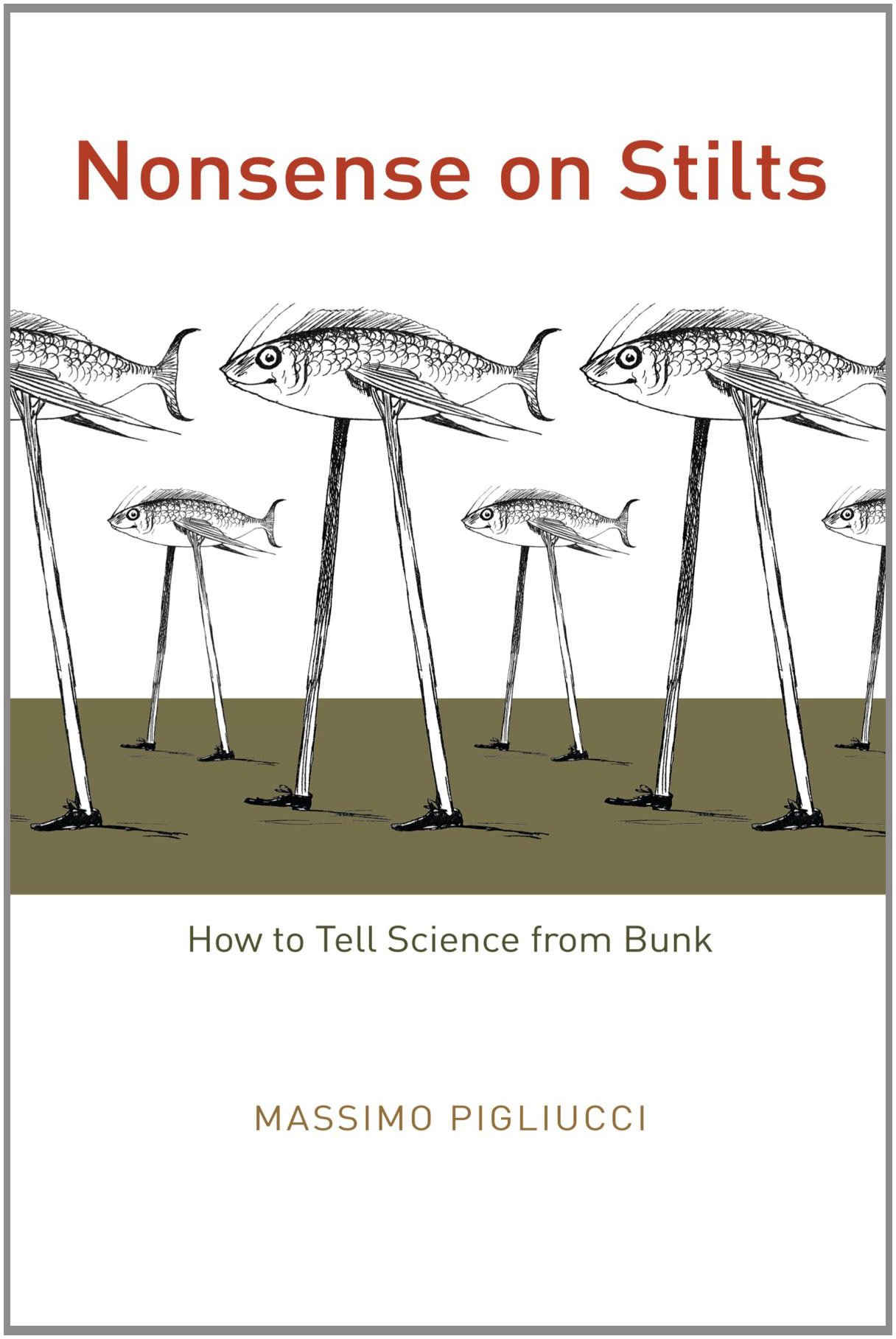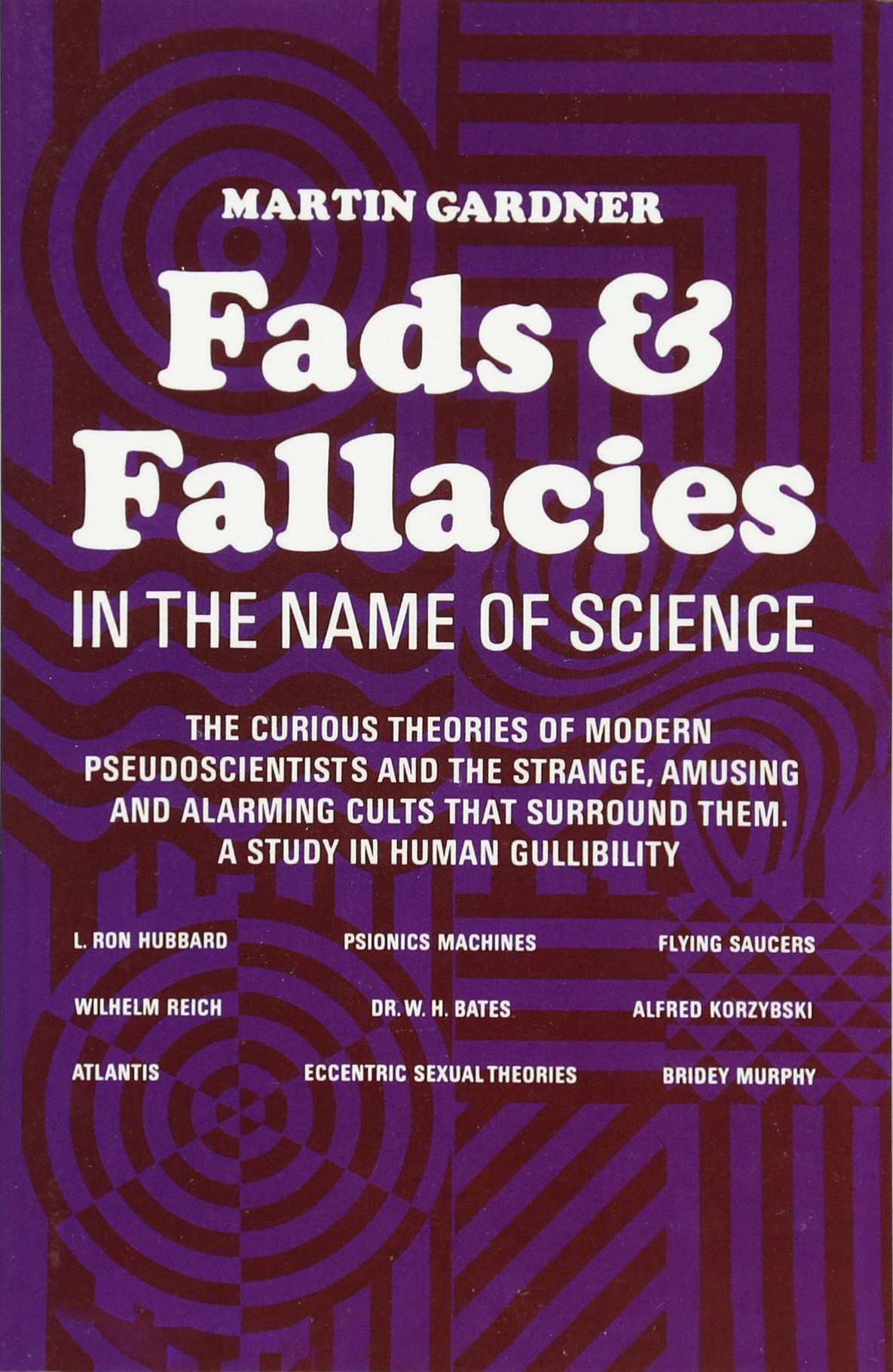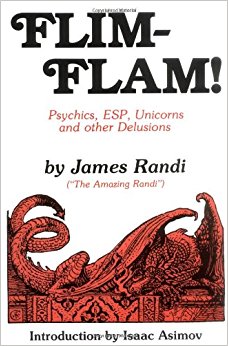Books on Critical Thinking in Science
Back when I graduated college, I had a bit of an awakening. I was never a full steam ahead conspiracy theorist, but I'll admit I enjoyed reading about aliens, Bigfoot, Loch Ness Monster, etc. Come 2014, I finally read "Nonsense on Stilts" and I won't lie that it opened my eyes to the world of critical thinking and skepticism. There's a lot of misinformation (fake news?) out there, and it's a good idea to have a guide along the way. Well, here's more than just one or two.

Nonsense on Stilts, by Massimo Pigliucci
The book that started it all for me. The purpose of this book is to examine the line between science and pseudoscience, and to understand how they differ. The author is both a philosopher and evolutionary biologist, and provides the reader with a well-written argument in each chapter. While I read the book, I felt as if he were conversing with me, offering examples to better understand his arguments, and occasionally injecting a bit of witty humor into the conversation. He provides a thorough examination at the different realms of pseudoscience, along with a history of the evolution of science, to better understand where it is coming from and to where it is going. At the end of the book, he wraps up with an answer to the question on everyone's mind, "how can the average individual tell the different between science and pseudoscience?" The moral of the book is that we must understand the purpose and goal of science, and to think critically when examining an argument, scientific or otherwise. After reading Nonsense on Stilts, I have a better understanding of science, and I think you will too.

Fads and Fallacies, by Martin Gardner
The original tome of critical thinking and skepticism. For being written 50+ years ago, the book reads as if it was written yesterday. Extremely witty and cutting, many of the topics have falled by the wayside but have been replaced by their 21st century counterparts. Some of the concepts are ridiculous, while some seem more plausible until a deep dive shows them for what they truly are. The book covers UFOs, chiropracters, dowsing, Atlantis, homeopathy, and so much more.

The Skeptic's Guide to the Universe, by Steven Novella
This is an absolutely wonderful update and improvement on Carl Sagan's "Demon Haunted World." This book is a close-to-comprehensive examination of skepticism. Novella and colleauges discuss the skeptical process, critical thinking, and other ways to prevent being fooled by false and inaccurate assertions and data. There's also many chapters on specific examples of common fallacies, including intelligent design, climate change denial, and others. The book is an inspiration that all hope is not lost for science and logic, and is written in a witty and enjoyable style.

Bad Science, by Ben Goldacre
I read this book the week before I started medical school, and it should have been my summer reading assignment. This book examines how science and its presentation to the public can be misused for corporate means. He discusses the lack of data for homeopathy and other "quack science" in a reasonable and well laid-out fashion, as well as the use of skewed statistical data by pharma companies to prevent removal of dangerous drugs from the market. I found this book to be very readable, I think I blew through it in a week. It's definitely good if you want a better understanding of how to understand statistics and data interpretation, and how to critically read scientific papers. I just purchased his newer book, "Bad Pharma," and plan on reading it sometime soon.

Reality Check, by Donald Prothero
There's a lot of science books that focus on the controversies of evolution or climate change. This book covers this and more, including the anti-vax movements, alternative medicine, and many others (that I can't recall right now). It was a nice change-up of topics that receive a lot of press and those that receive little, but all are topics affected by people spreading misinformation. He also ends the book with some input on science and the political climate. Overall, a good overview of some "controversial" topics.

Flim Flam!, by James Randi
James Randi is a famous magician and skeptic who shares many of his personal stories of debunking "supernatural" claims. He tells stories about psychics, faith healers, and clairvoyants, demonstrating how they faked their claims and even how to reproduce their tricks. He also talks about famous hoaxes, such as the Bermuda triangle and UFO sightings. Most importantly, he demonstrates how to think critically and to not take every claim on face value. Randi gives the impression of an arrogant know-it-all, but it's hard to disagree when he pretty much knows it all.

The Demon Haunted World, by Carl Sagan
This is one of the greatest books on skeptical and critical thinking. Sagan takes a look at how the scientific process works and how to apply it to prove or disprove claims. He includes his famous "Baloney Detection Kit," which can be used to determine when a claim is probably baloney. His full kit can be found HERE, along with a list of logical fallacies used to prove an incorrect argument true. Sagan's writings are straight-forward and enjoyable to read, and makes for an excellent reference guide. There are many other sections to the book which I can't recall, but each is interesting in its own right. This is my favorite Sagan book and one of my favorites overall. Understanding how to use science for good and for truth is of the utmost importance, and being able to see false claims for what they are is of the utmost value.